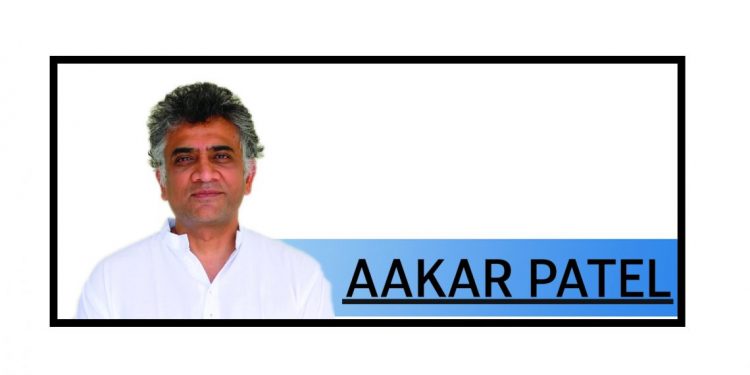Last week my new book was out and its subject is peaceful protest by individuals. The question is why should one protest in a democracy. There are many reasons. Let us take a look at one today. In 1919 Gandhi led an all-India strike against the Rowlatt Act. In support a crowd gathered in Amritsar to join the protest at Jallianwala Bagh. Punjab’s governor Sir Michael O’Dwyer claimed British rule was under threat and responded with violence, unleashing the Gurkha and Baloch Regiments on the civilians, killing over 300.
The British passed the Rowlatt Act in the face of opposition from all of the Indian members of the Imperial Legislative Council. The British claimed the law would affect very few Indians. However, Gandhi called it an “affront to the nation.”
So what was so offensive about the Rowlatt Act (more properly, the Anarchical and Revolutionary Crimes Act, 1919)? Why were Indians so angered by it that they were holding public demonstrations and opposing it in the Council?
The Act did away with fundamental principles of the rule of law. It could hold people without charge or trial and it did away with jury trials, in favour of in-camera trials by judges. This is called administrative detention, meaning the jailing of someone without a crime having been committed, merely on the suspicion that they will commit a crime in future.
Now let us have a look at the India of today, when we are being a free people. In 2015, over 3200 people were held in ‘administrative detention’ in India. Gujarat has the Prevention of Anti-Social Activities Act of 1984. It allows for detention without charge or trial for a year. Uttar Pradesh has the National Security Act allowing detention without charge or trial for a year to prevent a person “from acting in any manner prejudicial to the defence of India, the relations of India with foreign powers, or the security of India” or “from acting in any manner prejudicial to the security of the State or from acting in any manner prejudicial to the maintenance of public order or from acting in any manner prejudicial to the maintenance of supplies and services essential to the community.”
Recently this law has been used to jail Muslims accused of cattle smuggling and slaughter in Madhya Pradesh. Tamil Nadu has the Prevention of Dangerous Activities of Bootleggers, Drug-offenders, Forest-offenders, Goondas, Immoral Traffic Offenders, Sand-offenders, Sexual Offenders, Slum-grabbers and Video Pirates Act, 1982. It allows the state to jail without trial or charge “any bootlegger or drug offender or forest offender or goonda or immoral traffic offender or sand offender or offender or slum grabber or video pirate…to prevent him from acting in any manner prejudicial to the maintenance of public order.”
Karnataka has the Prevention of Dangerous Activities of Acid Attackers, Bootleggers, Depredator of Environment, Digital Offenders, Drug Offenders, Gamblers, Goondas, Immoral Traffic Offenders, Land Grabbers, Money Launderers, Sexual Predators and Video or Audio Pirates Act, 1985. It allows for detention without charge or trial of up to 12 months of “any acid attacker or bootlegger or depredator of environment or digital offender or drug offender or gambler or goonda or immoral traffic offender or land-grabber or money launderer or sexual predator or video or audio pirate…to prevent him from acting in any manner prejudicial to the maintenance of public order.”
Some states have less ornate and more direct phrasing. Assam has the Preventive Detention Act, 1980. It can jail individual for two years, without charge or trial.
Bihar has the Conservation of Foreign Exchange and Prevention of Smuggling Act, 1984. It allows for “detention without charge or trial for up to two years to prevent a person from i) smuggling goods, or (ii) abetting the smuggling of goods, or (iii) engaging in transporting or concealing or keeping smuggled goods, or (iv) dealing in, smuggled goods otherwise than by engaging in transporting or concealing or keeping smuggled goods, or (v) harbouring persons engaged in smuggling goods or in abetting the smuggling of goods.”
Kashmir has three laws, one allowing detention without charge or trial for six months, another for a year and third for two years. West Bengal has the Prevention of Violent Activities Act of 1970. Journalists in Chhattisgarh are regularly jailed under the NSA and kept in prison for a year for their reporting.
As we can see from the dates, none of these are so-called colonial laws. These are laws we have gifted ourselves. Every state uses them liberally and there is no resistance from the judiciary. These days we have classified sections of the Indian people as the enemy through the use of the phrase anti-national.
The Rowlatt Act was never implemented nationwide. But our Rowlatt Acts are used against Indians in every state. Why do we not have Jallianwala Bagh type gatherings today? Why do our legislators not resist the oppression by the state of its citizens as did those of the Imperial Legislative Council? Is it that we no longer care about tyranny and due process and individual rights? Or is that it has become fine because it’s not foreigners doing it?






































